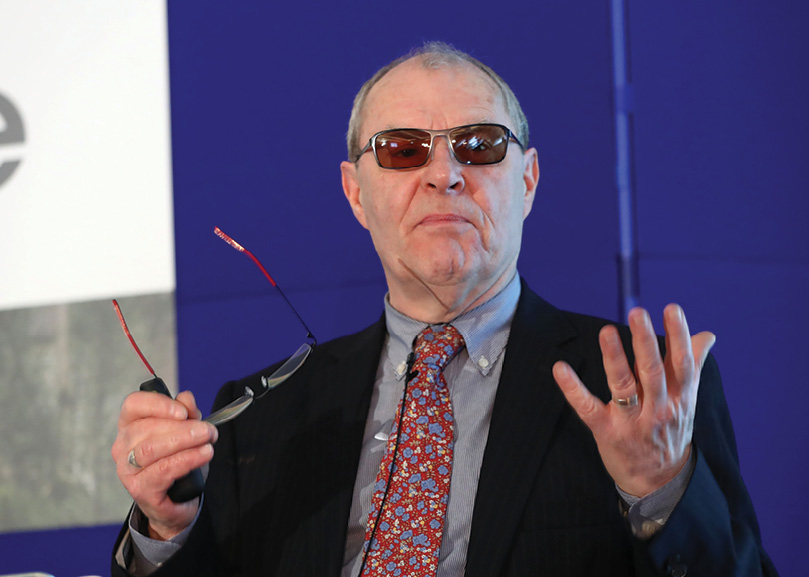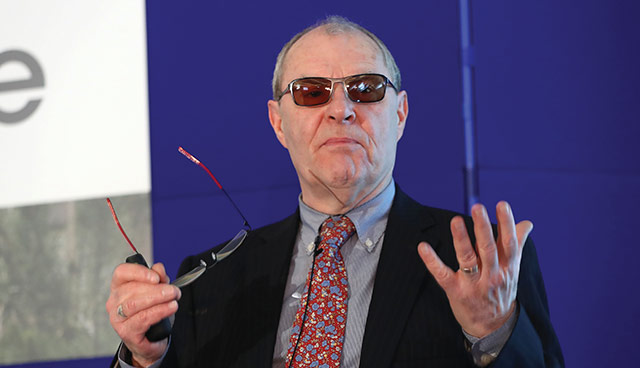Meeting the rural challenge


Emeritus Professor of Spatial Sustainable Development and current interim Chair of the Housing Executive
Peter Roberts discusses implementation of the Rural Needs Act (Northern Ireland) 2016.
The importance of recognising and meeting the needs of people who live in rural areas is a matter not restricted to Northern Ireland. Over the past decade increased attention has been paid to the rural agenda, especially as the consequences of shrinking public budgets and reduced direct service provision have become evident at the level of the individual locality. Even though rural areas offer many attractions as places to live, they also experience particular problems, especially those associated with remoteness, restricted choice and a lack of alternatives should a specific service or facility be withdrawn.
This recognition of the ‘rural problem’ is evident in many guises; from general assessments of rural housing need, such as the Rural Housing Policy Review of 2016, which argued for: “leadership from central and local government” to be harnessed to “the good will and creativity of local people” (1), to more detailed studies of the causes and consequences of rural problems and deprivation, many of which demonstrate the pivotal role played by housing in the rural economy (2, 3).
Irrespective of the source of evidence or the method of analysis, common themes emerge from the available assessments, and the new legislation seeks to reflect and apply these themes. The Rural Needs Act (NI) 2016 places a duty on public authorities to “have due regard” to rural needs when developing, adopting, implementing or revising policies, strategies and plans, and when designing and delivering public services. Central to this duty is the requirement to enable the achievement of a standard of living comparable with that of the population in general.
In addition to this duty, section 3 of the Act requires public authorities to provide information on how they fulfil their obligations and to include this information in their annual report, while section 4 of the Act requires the Department of Agriculture, Environment and Rural Affairs (DAERA) to put arrangements in place with regard to co-operation and the exchange of information between public authorities.
Although the Housing Executive has always sought to identify and meet the needs of rural dwellers, the new legislation provides fresh impetus and, in the form of an implied accompanying requirement, places increased emphasis on the desirability of collaboration between organisations in order better to serve rural areas. The recent introduction of other changes to the government, governance and delivery of public and other services in Northern Ireland coincides with the obligations of the new Act.
Chief among these innovations is the introduction of Community Planning – an initiative welcomed and supported strongly by the Housing Executive. Community Planning-led by the 11 councils, but involving a wide range of other bodies, including the Housing Executive – has the capacity to deliver an improved level of service to communities in both urban and rural areas. Based on the longer experience of Community Planning in Scotland(4), rural areas can benefit through the pooling of responsibilities and resources (human, financial and other) in order to allow threatened services to continue to be delivered through joint provision and/or the introduction of new models of delivery. This ‘greater than the sum of the parts’ approach offers an example of how the new Act’s requirements can initiate change.
For the Housing Executive, the Act represents a further step along an established pathway characterised by integrated service delivery and collaboration with a wide range of partners. Rural proofing is one guise or another has an established place in the Housing Executive’s processes of policy formulation and delivery(5), and greater explicit emphasis was placed on such matters in 2002 with the introduction of mandatory rural proofing for all public bodies. Even if the 2002 requirement and the 2016 Act did not exist, the Housing Executive’s own statutory duties require it to operate across all localities in Northern Ireland, and that means it cannot ignore the needs of the 37 per cent of the population who live on more than 75 per cent of the land area. Even though the definition of rural is somewhat arbitrary – settlements with fewer than 5,000 residents and open countryside – it does give an indication of the significance of the rural agenda and the importance of constructing a response that is equitable.

In practice, most aspects of Housing Executive policy already take account of the characteristics of rural areas; and it is the intention to ensure total conformity with the requirements of the new Act. Particular issues that currently engage the Housing Executive centre on:
• the growth of population living in rural areas – it is growing at twice the rate of the urban population and grew by 17 per cent between 2001 and 2015;
• the low level of income in rural areas – people working in Belfast earn 40 per cent more than people living in the rural west;
• the higher average price of homes in rural areas – in late 2017 house prices in rural areas were 19 per cent higher in rural areas than urban areas;
• the relatively low proportion of social housing stock in rural areas – in rural areas 7 per cent of housing stock is social housing, in urban areas 18 per cent of stock is social housing;
• access to services in rural areas is more limited than in urban areas, as is the availability of public transport; and
• social deprivation in rural areas is similar to other areas, but often deprivation is hidden.
In order to ensure that the Housing Executive complies fully with the requirements of the Act, the existing procedures for rural proofing of policies, strategies, plans and delivery programmes have been reviewed and revised. Given the extensive nature of rural areas and the considerable amount of social housing stock that is defined as rural, in essence the need to rural proof applies to virtually all of the Housing Executive’s programme. The objective of introducing the revised rural proofing procedure is to ensure the equitable treatment of people in rural areas, and for the Housing Executive that means our tenants and everyone else who uses our many services.
As noted earlier, the size of the rural population is increasing and that both carries with it an increased level of demand for Housing Executive services, but it also provides scope to deliver services with a greater economy of scale. The real answer to ensuring quality of life in rural areas is to work together in partnership to devise and deliver services that are required and valued by the rural community; and this also means engaging with that community to give them the opportunity to help to shape and manage their places.
Professor Peter Roberts is Interim Chair of the Northern Ireland Housing Executive and, until February 2018, was Chair of the Rural Housing Advisory Group.
Notes and References:
(1) Rural Housing Policy Review Group (2016) A Fair Deal for Rural Communities, Rural Housing Policy Review Group, London. (2) Williams, E. and Doyle, R. (2016) Rural Poverty in Wales, Sefydliad Polisi Cyhoeddus i Gymru, Cardiff. (3) Snelling, C. (2017) Right to Home? Institute for Public Policy Research, London. (4) Barzyk, M.et.al (2016) Place-based Approaches to Joint Planning, Resourcing and Delivery, Improvement Service, Livingston. (5) Northern Ireland Housing Executive (1991) Rural Housing Policy: The Way Ahead, Northern Ireland Housing Executive, Belfast.





